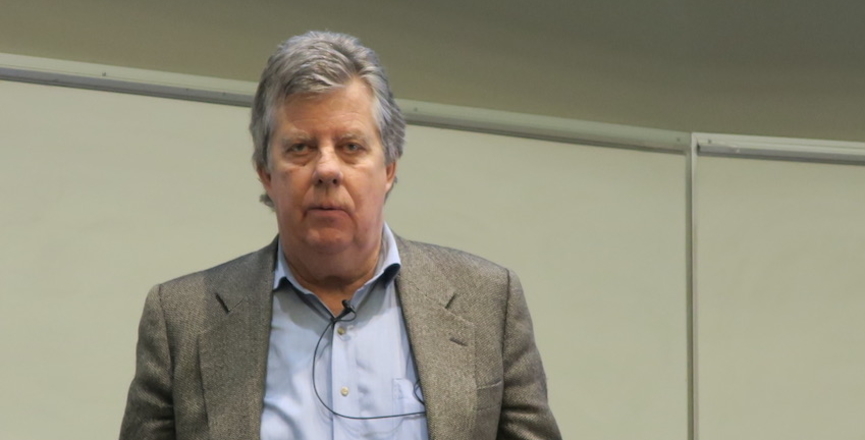Earth scientist David Hughes has become well known in certain circles as the Cassandra of the oilpatch.
Cassandra, as the classically educated will recall, was the priestess of Apollo cursed to foretell the truth and never persuade anyone. A figure of Greek myth, and a walk-on part with a few lines in Shakespeare, everyone thought she was nuts.
Back in 2016, when Alberta’s New Democrats were changing before our eyes into another centre-right conservative party dedicated to fighting for pipelines, Hughes published a study that concluded there was no way Canada could meet its global climate commitments if it kept building new export pipelines and ramping up oil extraction.
This seems pretty obvious, but at the time everyone who was anyone in Alberta acted like he was nuts.
Hughes also predicted that “new pipelines with tidewater access will not significantly increase the price Canada receives for its oil.”
This also seemed obvious to anyone who paid any attention to economics. But it challenged one of the political orthodoxies of the era, that building pipelines to tidewater and shipping ever increasing amounts of Alberta bitumen to Asia would magically repeal the iron law of supply and demand.
The belief that pipelines could defy economic gravity and overcome low world oil prices helped Jason Kenney’s United Conservative Party get elected and still holds sway in Alberta. Nowadays, it fuels the nutty Wexit movement as well as Kenney’s UCP.
Well, there’s been a lot of oil under the bridge since 2016. It’s 2020, oil prices are still in the bargain basement, and Kenney’s promises he could restore the “Alberta advantage” are ashes in his mouth. And ours.
Hughes has now taken a look at the new realities of a world where supply outpaces demand, alternative energy sources are on the rise, global climate change is widely acknowledged, and a pandemic is suppressing demand even more, and he has reached new conclusions.
He isn’t predicting any more that pipelines with tidewater access will not significantly increase the price Canadian oil fetches.
No, he said in a report published yesterday by the Corporate Mapping Project, it will probably make them even lower.
Specifically, he concluded that if the Trans Mountain expansion project (TMX) is completed, it will result in a loss of at least US$4 per barrel shipped to Asia by that route.
“Adding the difference in transportation cost to the discount in price selling to Asia compared to the U.S., and the netback loss per barrel to Canadian producers by selling heavy oil to Asia is US$4 to US$6 per barrel or more,” he said.
“Very little heavy oil on the existing Trans Mountain pipeline is transported to Asia,” he added. “Instead, seaborne shipments go primarily to the West Coast of the U.S., which confirms the fact that there is no bonanza for shippers in Asia.”
So that isn’t likely to change even if the TMX is completed.
“Announced expansions of existing pipelines including the Enbridge Mainline, along with completion of Enbridge’s Line 3 in 2021, will create more than enough pipeline export capacity for Canadian oil producers through 2030, and through 2040 and beyond if some of Western Canada’s rail capacity is used,” Hughes added.
TMX will also further exacerbate Canada’s problem reducing emissions by encouraging additional oil production growth, he noted.
None of this is actually breakthrough stuff, any more than it was four years ago. In fact, it’s pretty ho-hum as conclusions about how things work go, although it’s nice to have the numbers crunched.
Just the same, it will probably prompt some fury in UCP circles, and, like most of Cassandra’s predictions, be ignored everywhere else in this country.
Cassandra, they say, accurately foretold the fall of Troy. “Cry, Trojans, cry! lend me ten thousand eyes, And I will fill them with prophetic tears,” Shakespeare had her say. Nobody paid any attention.
That old stuff has nothing to do with us Albertans, of course.
Hughes’ “Reassessment of Need for the Trans Mountain Pipeline Expansion Project” was released yesterday by the Canadian Centre for Policy Alternatives’ B.C. office on behalf of the Corporate Mapping Project.
The CMP is jointly led by the University of Victoria, the CCPA and the Edmonton-based Parkland Institute. It is funded by the Social Sciences and Humanities Research Council of Canada.
David Climenhaga, author of the Alberta Diary blog, is a journalist, author, journalism teacher, poet and trade union communicator who has worked in senior writing and editing positions at The Globe and Mail and the Calgary Herald.
Image: David J. Climenhaga




